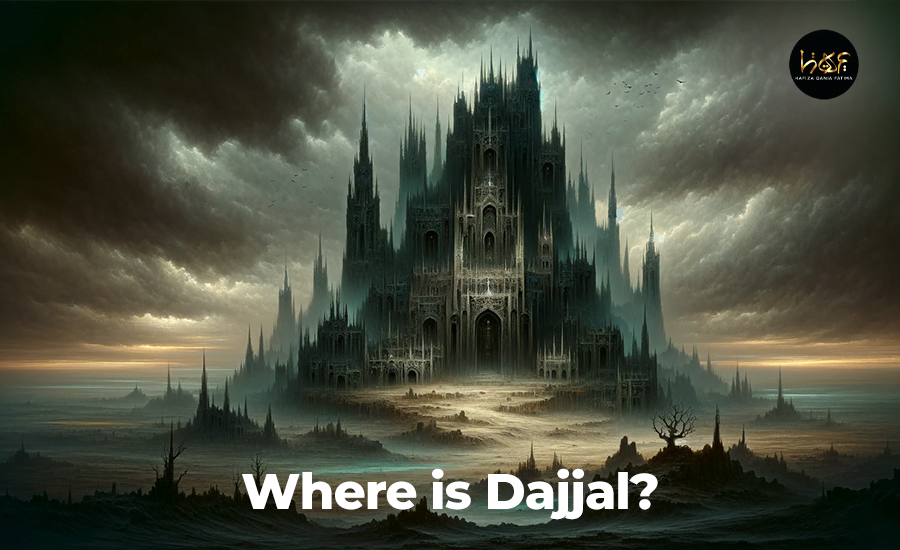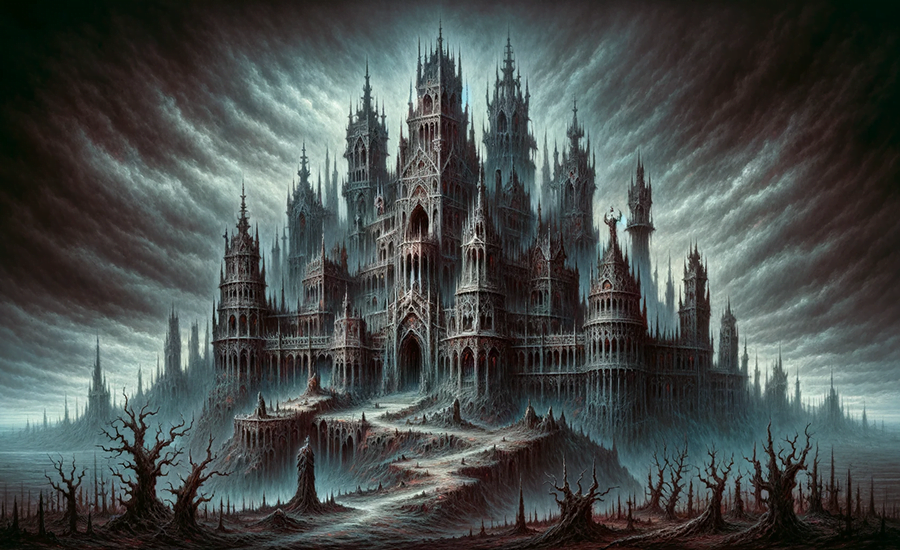
The query “Where is Dajjal?” echoes profoundly in the Islamic world, igniting a blend of curiosity and apprehension among the faithful. Dajjal, a pivotal figure in Islamic eschatology, embodies a complex mix of mystery and significance. His anticipated emergence, as prophesied in Islamic texts, is closely linked with the events of the end times, making it a subject of great importance. This expanded article delves deeper into Islamic teachings and traditions, aiming to illuminate the enigmatic aspects surrounding Dajjal and his role in the Muslim understanding of the end times.
The Prophetic Warnings about Dajjal:
The Prophet Muhammad صَلَّی اللہُ تَعَالٰی عَلَیْہِ وَاٰلِہٖ وَسَلَّمَ consistently alerted the Ummah about the impending Fitnah of Dajjal. These warnings were not mere casual remarks; they were profound and frequent, highlighting the severe nature of this trial. The Prophet’s supplications for Allah’s عَزَّوَجَلَّ protection from Dajjal, as narrated in Hadiths, emphasize the gravity of the situation. The richness of Hadith literature in describing Dajjal underscores its crucial significance, making it imperative for believers to understand and reflect upon these warnings.
Understanding Dajjal’s Characteristics:
Described as a master of deceit with miraculous capabilities, Dajjal’s portrayal in Islamic texts is both intriguing and alarming. He is said to possess a paradise-like garden and a hellish fire, symbolizing his ability to create illusions that challenge the very perceptions of reality. His swift travel across the globe, sparing only the sacred cities of Makkah and Madinah, signifies his pervasive and corrupting influence. This section delves into these characteristics, exploring their symbolic meanings and the implications they hold for Muslims.
The Current Whereabouts of Dajjal:

The exact location of Dajjal prior to his public emergence remains a subject of considerable debate and speculation among Islamic scholars. Some believe he is already present on Earth, concealed until the destined time, while others argue that his appearance is a future event. This uncertainty serves as a crucial reminder for the Muslim community to remain vigilant and spiritually prepared, regardless of his current state.
The Role of Dajjal in Islamic Eschatology:
Dajjal’s emergence marks a significant sign of Qiyamah, the Day of Judgment. His trial is not merely a test of faith but a profound challenge to the core beliefs of Muslims. He will claim divinity and sway many with his extraordinary abilities, presenting a test of faith like no other. Understanding his role in Islamic eschatology is not just academic; it’s a spiritual necessity for every believer, preparing them to withstand this monumental trial.
The End of Dajjal:
The termination of Dajjal’s fitnah, as foretold in Islamic teachings, is a momentous event. Prophet Isa عَلَیْہِ السَّلَام (Jesus) will be the one to bring an end to Dajjal’s reign of deception. The confrontation and subsequent defeat of Dajjal by Hazrat Isa symbolize the ultimate victory of truth and divine justice. This narrative holds profound implications in Islamic eschatology, symbolizing the triumph of faith and divine will.
Conclusion:
The enduring question, “Where is Dajjal?” serves as a spiritual beacon, urging Muslims to deepen their understanding of Islamic eschatology and to strengthen their faith. The teachings regarding Dajjal are not just historical or prophetic accounts; they are lessons and reminders for the believers. In these challenging times, they underscore the importance of seeking refuge in Allah عَزَّوَجَلَّ and remaining steadfast in faith. We pray for Allah’s عَزَّوَجَلَّ protection against the trials of Dajjal and for the strength to remain true to our faith. Ameen.
FAQs:
Q: What is the significance of Dajjal in Islamic belief?
A: This figure is a significant entity in Islamic eschatology, representing a major test of faith for Muslims. He symbolizes the ultimate trial before Judgment Day, highlighting the importance for Muslims to comprehend his role.
Q: How can Muslims prepare for Dajjal’s emergence?
A: Prepare for this significant end-times figure by strengthening faith, learning his traits from Islam, and frequently seeking Allah’s protection.
Q: Why can’t Dajjal enter Makkah and Madinah?
A: Islamic traditions state that angels appointed by Allah protect Makkah and Madinah. Angels safeguard these holy cities against Dajjal’s entry, symbolizing their sanctity and the divine protection they receive.
Q: Will Dajjal be recognized by everyone?
A: Dajjal will be recognized by true believers as a deceiver. The word ‘Kaafir‘ will mark his forehead, visible to Muslims, but his false claims of divinity may deceive others.
Q: Who will defeat Dajjal and how?
A: Prophet Isa عَلَیْہِ السَّلَام (Jesus) will be the one to defeat Dajjal. Islamic teachings say that he will descend in Dajjal’s time, confront and kill him, symbolizing truth’s triumph over falsehood.